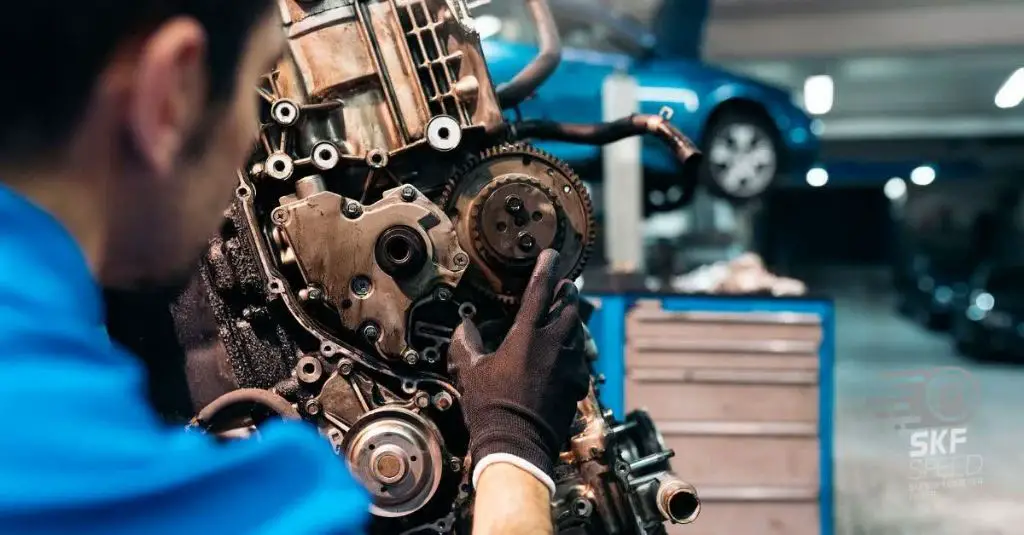Whether an engine swap is cheaper than repairing or replacing your existing engine depends on a few key factors:
Page Contents
Cost of the replacement engine
The cost of a replacement engine can vary greatly depending on the make, model, condition and source. Here are some typical ranges:
| Engine Source | Typical Cost Range |
|---|---|
| New from manufacturer | $4,000 – $15,000+ |
| Remanufactured | $2,000 – $6,000 |
| Used/salvage yards | $500 – $3,000 |
As you can see, purchasing a new engine from the manufacturer will likely be the most expensive option. Going with a remanufactured or used engine can provide significant cost savings.
Cost of labor
In addition to the cost of the replacement engine itself, you also have to factor in the labor involved with removing your existing engine and installing the new one. This typically involves 15-40 hours of labor at $80-$150 per hour. So total labor costs can range from $1,200-$6,000 or more.
Modifications/custom work
Sometimes an engine swap will require custom brackets, engine mounts, adapters, fuel system mods and other fabrication work to make the new engine fit properly. This additional custom work can add $500-$3,000+ to the total cost.
Repair/rebuild cost comparison
To determine if an engine swap is your most cost-effective option, you need to compare it to the cost of repairing or rebuilding your existing engine. Here are some ballpark estimates:
| Repair/Rebuild | Typical Cost |
|---|---|
| Replace failed engine component (head gasket, piston rings, etc) | $1,000 – $3,000 |
| Full engine rebuild | $4,000 – $8,000 |
As you can see, smaller engine repairs may cost less than a swap. But for major work like a full rebuild, an engine swap starts to become a more affordable option.
Bottom line cost savings
As a general rule of thumb:
- If a relatively minor engine repair is needed, it is usually cheaper to do that repair rather than a swap.
- If a full rebuild is needed, an engine swap often provides cost savings compared to a rebuild.
- Going with a used/salvage engine typically provides the most significant cost savings over a new crate engine.
The specifics of your situation will determine whether an engine swap or engine repair/rebuild is the cheaper option. Get quotes on both options from reputable shops to compare apples-to-apples pricing.
Other factors influencing cost savings
Aside from the upfront cost of the engine and labor, here are some other factors to consider:
Long-term reliability
A freshly rebuilt or swapped engine can provide many years of reliable service. Rebuilding an engine with significant wear may result in additional repairs down the road.
Resale value
An engine swap may increase the car’s value and appeal if it is a more powerful/desirable engine. A rebuild maintains the original engine configuration which some buyers may prefer.
Difficulty of the swap
The complexity of the engine swap can impact cost. Swapping to an engine never installed in that model originally will require more custom work.
Your mechanical skills
Doing portions of the swap yourself (engine removal, install) lowers labor costs if you have the skills.
Steps to get accurate quotes
To determine the true cost difference between an engine swap vs rebuild/repair for your specific vehicle, take these steps:
- Get a professional diagnosis of the engine issues
- Get a quote for the minimum repairs needed to fix the issues
- Get a quote for a full engine rebuild if major internal damage is found
- Research options for replacement engines and costs
- Get quotes from performance shops for the total swap costs
Compare all these quotes to determine the most cost-effective option for your situation.
Conclusion
The cost-effectiveness of an engine swap depends largely on the extent of damage to your existing engine and the price of replacement engines. Smaller repairs are usually cheaper, while swaps start to provide savings over full engine rebuilds. Get multiple quotes on both options to determine the most affordable solution.
